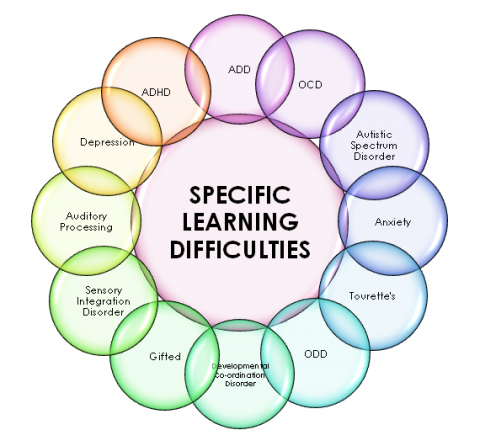
Let’s be honest, all kids have a bit of a disobedient, defiant or impulsive streak. They question us, challenge us and definitely have a mind of their own, but is there a line where this behaviour becomes too much to handle? Is there a point where this behaviour isn’t “normal”?
This was the exact situation we came across in the early days before Zac was diagnosed with Autism.. what was normal behaviour for a child (boy) his age and what wasn’t.. now before you panic.. if your child does have some challenging behaviours or learnings I’m not suggesting they have Autism but there’s definitely some things to think about as far as what you can do to help them.
Today’s teachers are dealing with a number of kids who have some sort of behavioural or learning challenges. These could range from GDD, ADHD, ODD, ASD, Dyslexia, Dyspraxia, Dyscalculia, SPD, APD, Dysgraphia – and the list continues. This makes it more challenging for the child to understand what they’re being taught as well as how they learn and process the information being given. It can also be way more difficult to engage children like this in the “traditional” model of teaching.
When I look at Zac and how he learns and interprets information I often feel like the education system needs to catch up on how these kids learn. Zac is a pretty switched on kid these days, he struggles with some of the day to day that is school (social / anxiety / processing information), but he never ceases to amaze me on what he actually does know and understand.
He does okay at school, but he seems to be bored with what he sees as a pointless process. When he is taught in a way that engages him he’s great but when he’s taught in the more traditional manner he doesn’t seem to find it as easy.
So as a parent we’re always wanting to give our children the best opportunities we can, especially in their education and development because I’m not sure about you but for me I see where things are heading and it’s going to be tough for our kids out in the “real” world.
The gut / brain connection is something I’m always talking about to my patients, if the gut health isn’t right then the brain isn’t going to have the clarity it needs to function effectively. Neurotransmitter imbalance is often to blame for learning and behavioural issues in children and this can be caused by toxicity, infection, digestive dysfunction, low nutrient levels, heavy metal and mineral imbalances or a combination of all of them.
Poor gut health can lead to difficulties in detoxification which can in turn contribute to oxidative stress and inflammation in the brain (Autism, ADHD, Behavioural Issues), in digestion (food intolerances, digestive disorders), in lungs (asthma) and also in the skin (eczema).
Often when we start to correct poor gut health, reduce the inflammation and start healing the gut lining we will find improvements in all of these other areas, in particular behaviour and concentration in class. Having spent years working on my sons overall gut health and inflammation he is now able to function in the mainstream setting of school and be a positive member of the classroom environment.
It’s interesting too that I generally find the children I treat who have learning or behavioural challenges also have either a poor appetite or are fussy eaters which can relate to a number of different things including the taste or texture of the food, an overgrowth of bad bacteria such as Candida albicans can cause them to crave sweet and starchy foods or it could be abnormal bacteria in the mouth producing toxins which change the way food tastes.
Nutritional deficiencies, food allergies or sensitivities will also have a negative impact on the brain function as our brain needs certain nutrients to function well. Fish Oil (in particular DHA) in children can do wonders for the child’s brain development with improvements in behaviour and learning. The important thing here is to ensure that when choosing a fish oil you get one that is well purified and good quality so this is not an area to let price dictate your choice.
Adequate protein is a must in early childhood development with those kids not consuming enough protein finding it can affect their ability to learn as well as wreaking havoc with their blood sugar levels.
And of course overall vitamins and minerals such as Vitamins A, B, C and D as well as minerals such as Zinc, Magnesium, Iron, Selenium, Molybdenum and even Iodine.
Overall, supporting a child’s learning difficulties is actually more complex than you may think and it requires a team effort to get success. Teachers, parents and even therapists need to work together towards the same goals with each doing their part of the puzzle, it’s the only way to get real, long term success otherwise you really are just putting a bandaid on the situation.
From the team at Mumma’s Own
Health, lifestyle and wellbeing updates delivered directly to you.
© Copyright 2024 Mumma’s Own • About • Shop • Blog • Members • Privacy • Terms & Conditions • Follow us on Facebook